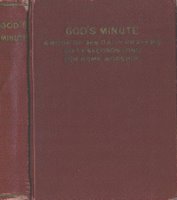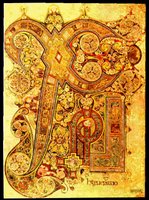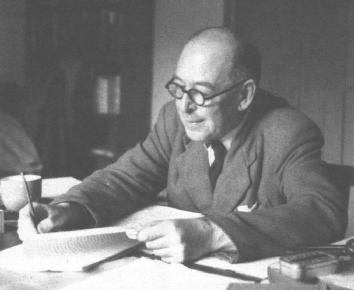Thoughts on Reformation Day
 As most of you know, today is Reformation Day. The blogosphere will be full of posts recounting the historical event from the year 1517, when Martin Luther's 95 Theses were nailed to the door of the Castle Church in Wittenberg.
As most of you know, today is Reformation Day. The blogosphere will be full of posts recounting the historical event from the year 1517, when Martin Luther's 95 Theses were nailed to the door of the Castle Church in Wittenberg.I have nothing original to add, but I did read quite a bit yesterday about Luther and the 95 Theses and the Reformation and was struck yet again with an awesome awareness of God's providential Hand in the affairs of men. So often we fall into thinking that the Reformation of the church was Luther's affair, and forget that God ordered events to "fall out according to the nature of second causes, either necessarily, freely, or contingently:"
The Westminster Confession of Faith, Chapter V: Of ProvidenceLuther was a man who was tortured by his sinful, corrupt heart. Trained as a lawyer, he understood the imperatives of God's law and no matter how frequently or passionately he confessed those sins, he was never able to gain a sense of forgiveness because confession only served to prove the "hidden strength of corruption and deceitfulness of his heart." And yet it was this tortured soul that God awakened to the truth that would characterize the cry of the Reformation: "The just shall live by faith!"
I. God the great Creator of all things doth uphold, direct, dispose, and govern all creatures, actions, and things, from the greatest even to the least, by his most wise and holy providence, according to his infallible foreknowledge, and the free and immutable counsel of his own will, to the praise of the glory of his wisdom, power, justice, goodness, and mercy.
II. Although, in relation to the foreknowledge and decree of God, the first Cause, all things come to pass immutably, and infallibly; yet, by the same providence, he ordereth them to fall out, according to the nature of second causes, either necessarily, freely, or contingently.
III. God, in his ordinary providence, maketh use of means, yet is free to work without, above, and against them, at his pleasure.
IV. The almighty power, unsearchable wisdom, and infinite goodness of God so far manifest themselves in his providence, that it extendeth itself even to the first fall, and all other sins of angels and men; and that not by a bare permission, but such as hath joined with it a most wise and powerful bounding, and otherwise ordering, and governing of them, in a manifold dispensation, to his own holy ends; yet so, as the sinfulness thereof proceedeth only from the creature, and not from God, who, being most holy and righteous, neither is nor can be the author or approver of sin.
V. The most wise, righteous, and gracious God doth oftentimes leave, for a season, his own children to manifold temptations, and the corruption of their own hearts, to chastise them for their former sins, or to discover unto them the hidden strength of corruption and deceitfulness of their hearts, that they may be humbled; and, to raise them to a more close and constant dependence for their support upon himself, and to make them more watchful against all future occasions of sin, and for sundry other just and holy ends.
VI. As for those wicked and ungodly men whom God, as a righteous Judge, for former sins, doth blind and harden, from them he not only withholdeth his grace whereby they might have been enlightened in their understandings, and wrought upon in their hearts; but sometimes also withdraweth the gifts which they had, and exposeth them to such objects as their corruption makes occasions of sin; and, withal, gives them over to their own lusts, the temptations of the world, and the power of Satan, whereby it comes to pass that they harden themselves, even under those means which God useth for the softening of others.
VII. As the providence of God doth, in general, reach to all creatures; so, after a most special manner, it taketh care of his church, and disposeth all things to the good thereof.
Luther was used by God for "sundry and other just and holy ends." God was the Reformer.
If you write about Reformation Day today, don't forget to send a link to Tim so he can add it to his Reformation Symposium!
Related Tags: Reformation Day, Martin Luther, Westminster Confession of Faith, Providence






























